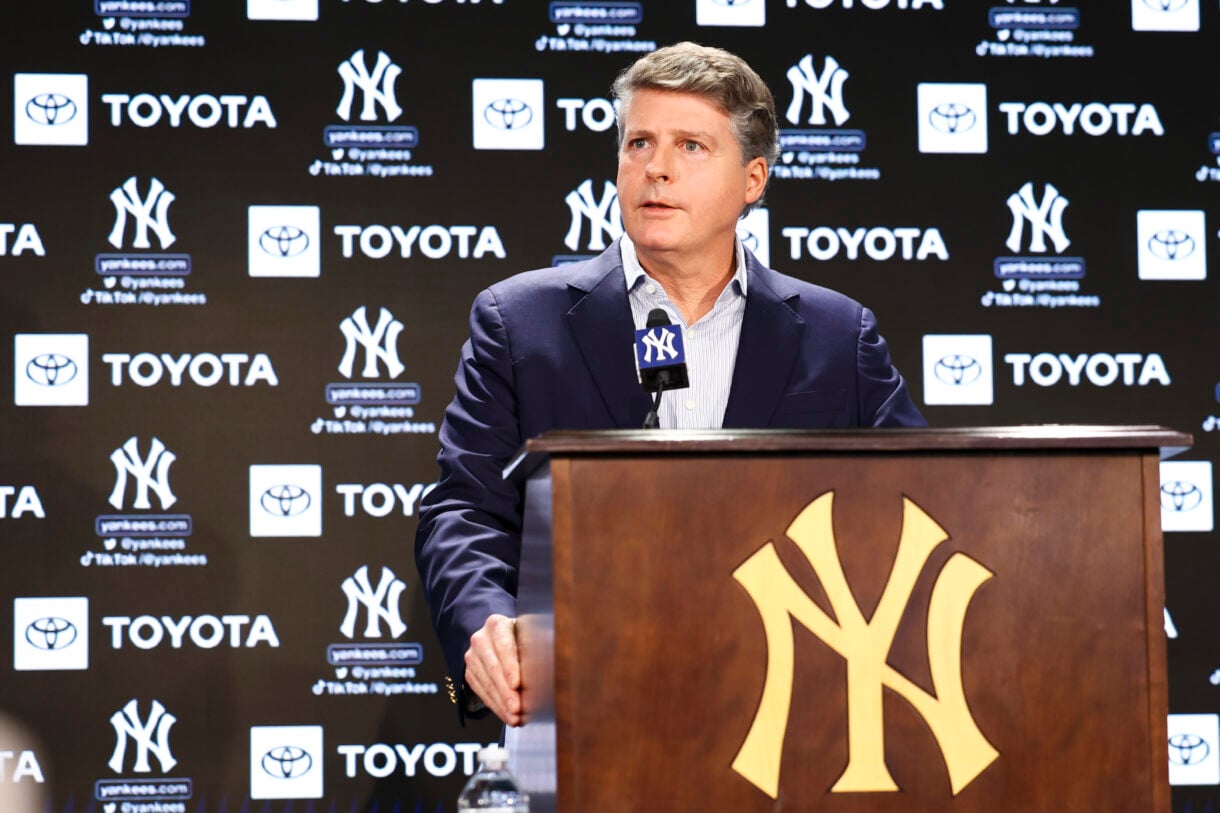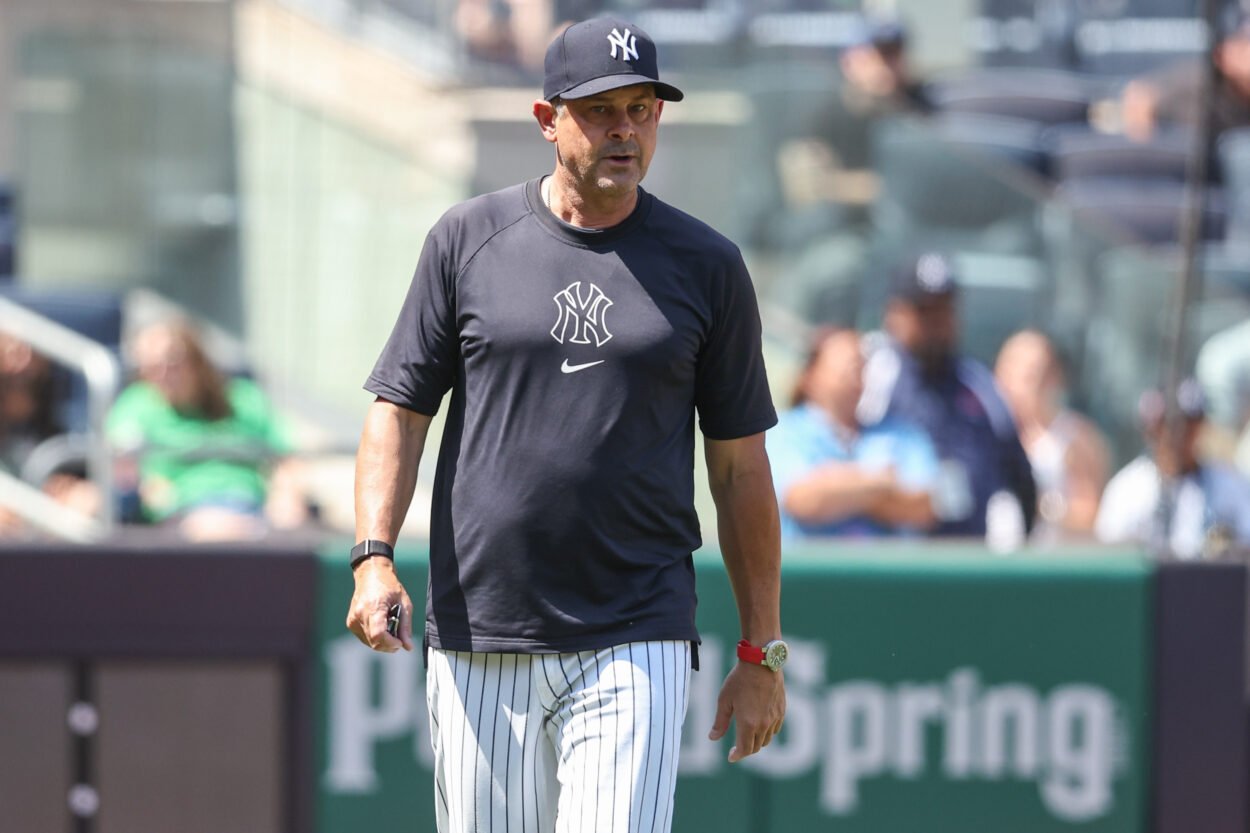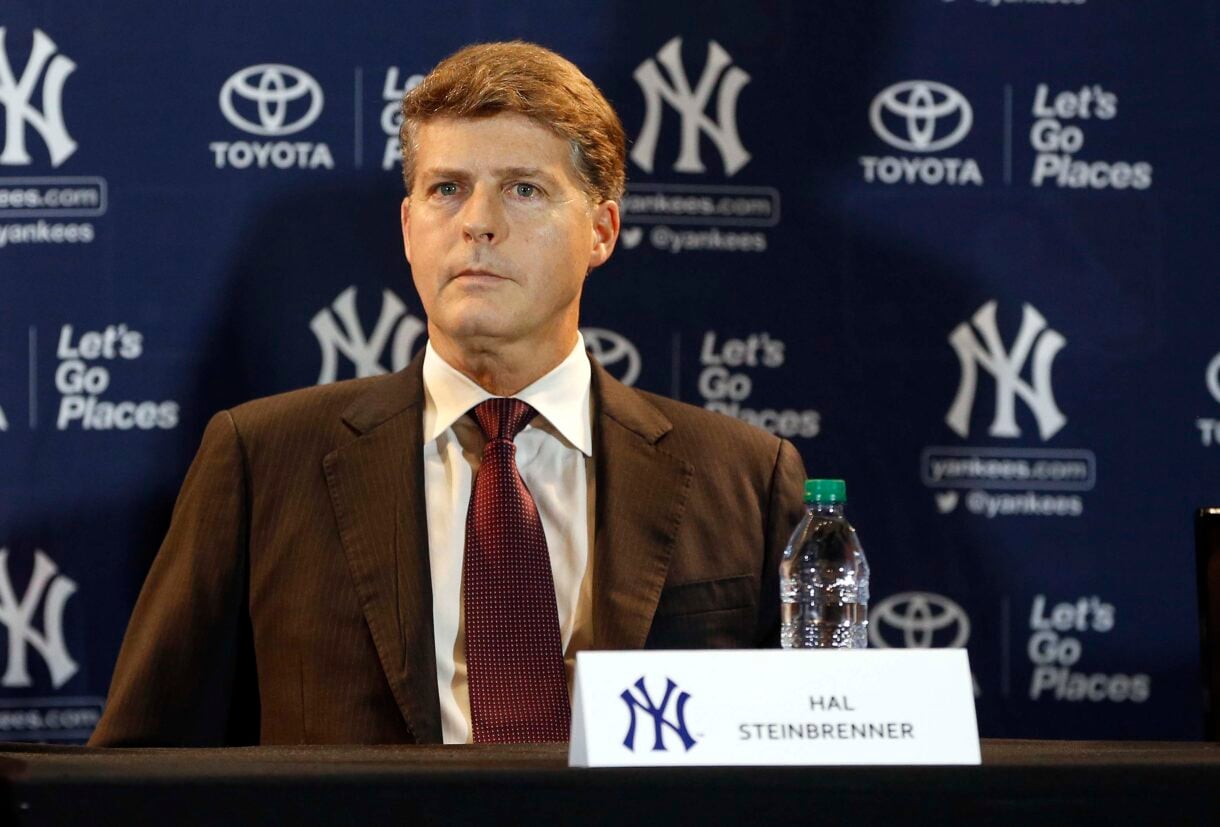
A quiet Monday media session rarely delivers the kind of line that makes fans sit up the way Hal Steinbrenner’s did. Yet there he was, the owner of the New York Yankees, defending Aaron Boone with a firmness that felt almost defiant. His message was simple: don’t pin this season’s failure on the manager. For a fanbase that has lived through 16 straight years without a parade, that sentiment landed with mixed reviews.
A Complicated Defense
Steinbrenner’s support of Boone wasn’t new, but the phrasing carried weight. Saying Boone “makes overall good decisions on the field” might sound reasonable from an ownership box, but it struck a different chord among fans who watched the Yankees get bullied by the Blue Jays from April through October. Toronto won eight of the 13 regular-season matchups, then handled the Yankees again in the Division Series. When one team consistently outplays another across six months, it stretches credibility to suggest the manager bears absolutely no meaningful responsibility.
What makes Steinbrenner’s stance tricky is that he’s not wrong about the players coming up short. The Yankees’ pitching staff, built to overpower lineups, had no real answers for Toronto’s contact-heavy approach. Vladimir Guerrero Jr. in particular seemed to find big moments whenever he wanted them. The roster wilted at the wrong time, and no one in the room will deny it. But framing the failure as entirely on the players creates a new problem: it absolves Boone in a way that feels disconnected from reality.

Boone’s Share of the Story
Boone isn’t a disaster, and he’s not the sole culprit, but he wasn’t spotless either. Managers don’t swing bats or throw pitches, yet their fingerprints show up in the margins. The bullpen’s use down the stretch raised questions. The use of the bench was also questionable. Some of the team’s most glaring midseason trends never found in-game answers. These aren’t fireable offenses on their own, but they’re missteps worth acknowledging, especially when the Yankees are chasing the tiniest competitive edges.
This is where Steinbrenner’s public framing becomes complicated. Fans don’t expect him to rip his manager in front of cameras. They do, however, expect honesty that reflects what they watched. Saying Boone had no hand in the outcome feels like an overcorrection, especially for an organization that constantly talks about accountability.
Steinbrenner was particularly concerned about how the Yankees must cut down on “mental mistakes – baserunning for sure, which is why we made a [coaching] change. That has been a thorn in our side most of the season this year.”
The Weight of Sixteen Years
Sixteen seasons without a title changes the way every comment is processed. For a franchise that prides itself on setting the sport’s standard, that gap carries a kind of heaviness. Maybe that’s why Steinbrenner’s defense struck such a nerve. It wasn’t just about the Toronto series or the 2025 Yankees. It was about whether the organization sees the same cracks that everyone else does.

Steinbrenner had to protect his manager; that part makes sense. But placing the entire burden on the players overshoots the mark. The Yankees win together, and they lose together. That includes stars, role players, Boone, and yes, the owner too. If this group is serious about ending the drought, the conversations ahead need to reflect that shared responsibility.
The offseason will give the Yankees time to reset, reassess, and recalibrate. Whether they use that time honestly is what will determine if next year looks any different.
